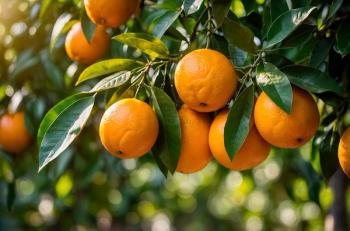
Plant Stanol Esters in Cholesterol-Lowering Foods
Since the 1950s and 1970s, plant sterols and plant stanols have been known to partly block the uptake of cholesterol and to significantly lower serum cholesterol concentrations. In the 1990s, it became possible to introduce foods enriched with plant stanols to consumers. This esterified form of plant stanols made it possible to incorporate significant amounts of plant stanols into everyday foods. By now, the efficacy and safety of plant stanol esters has been verified in more than 50 published clinical trials.
Sufficient Daily Use Important
Studies have shown that regular daily use of sufficient amounts of esterified plant stanols reduces serum low-density lipoprotein (LDL) cholesterol levels by up to 15%. This is a result of the ability of plant stanols to partly block the uptake of both diet-derived and liver-produced cholesterol in the dietary tract. A full effect can be seen in one to two weeks, and with a regular daily use, the cholesterol-lowering effect is sustained.
Plant sterols and plant stanols are typically more effective in lowering serum LDL cholesterol compared to other cholesterol-lowering dietary components, such as β-glucan and soy protein. A daily dose of approximately 2 g of plant sterols or plant stanols gives an optimal cholesterol-lowering effect, whereas smaller doses yield a smaller or no measurable effect.
In order to offer the clinically meaningful cholesterol-lowering effect, it is prudent that products with added plant sterols and plant stanols are formulated to provide the optimal daily intake of these agents (~ 2 g/day). Furthermore, the products must fit into the diet, preferentially a healthy diet, and the products must be tasty. The daily intake of plant sterols or plant stanols required for the FDA-approved health claim (0.8 g plant sterols or stanols provided in two daily servings) provides only about 50% of the optimal cholesterol-lowering effect obtainable from plant sterols or plant stanols.
Effect Additive to Other Dietary Means and Medication
Research shows that plant stanol esters are effective in all kinds of diets; they work in typical Western diets, as well as in diets low in saturated fat and cholesterol. For people unwilling or unable to accomplish heart-healthy dietary changes, plant stanol esters can be the first dietary step in reducing serum cholesterol. For those who already follow regular heart-healthy diets, plant stanol esters give an additional cholesterol-lowering effect.
Although plant stanol esters do have a positive effect even when incorporated in foods not recommended as part of a healthy diet (e.g., fatty snacks or sweet bakery products), doctors, nutritionists, and other health-care professionals expect the whole nutritional profile of the enriched products to be beneficial. This is understandable with regard to the overall beneficial health effects of a recommended diet such as weight maintenance or cancer prevention.
Plant stanol esters give an additional cholesterol-lowering effect even when combined with cholesterol medication, since the mechanism of action of plant stanols is different from the mechanism of the most widely used cholesterol medicines.
All Phytosterols Are Not Equal
Phytosterols (i.e., plant sterols and plant stanols) are often considered equal to each other with regard to their health effects. However, plant stanols work differently in our body. As mentioned above, plant stanol esters are well-known for their ability to significantly lower the absorption of cholesterol and, thus, serum cholesterol levels. In addition, plant stanol esters significantly lower the absorption of plant sterols. The possible effects of absorbed plant sterols have recently gained much scientific interest. Some studies show that even slightly increased serum plant sterol concentrations may increase the risk for atherosclerosis, whereas some find no association. Recent studies in experimental animals indicate that absorbed unsaturated plant sterols may promote the formation of atherosclerotic plaques. Thus, plant stanol esters are the optimal alternative for dietary-based cholesterol lowering. Plant stanol esters have two positive effects-they lower blood levels of both cholesterol and plant sterols. Plant stanols block cholesterol absorption in the gut and are themselves effectively excreted from the body.
Plant Stanol Ester
A plant stanol ester patented by Raisio Group, Finland (Raisio, Finland), is marketed as Benecol and incorporated into a range of foodstuffs by partner companies across the world. Numerous clinical studies have demonstrated that the plant stanol ester is safe. Formal acknowledgement of its safety is the generally recognized as safe status (GRAS) obtained in the United States, and the food for specific health use (FOSHU) approval for plant stanol ester spreads in Japan. The plant stanol ester has also been evaluated by food authorities in several EU countries prior to the launch of Benecol foods on the market in each country. Furthermore, it is today acknowledged by several international and national cardiometabolic risk treatment guidelines and thousands of people use it as part of their daily diet.
Susanna Rosin is nutrition manager for Raisio’s Ingredients Division.
Newsletter
From ingredient science to consumer trends, get the intel you need to stay competitive in the nutrition space—subscribe now to Nutritional Outlook.





